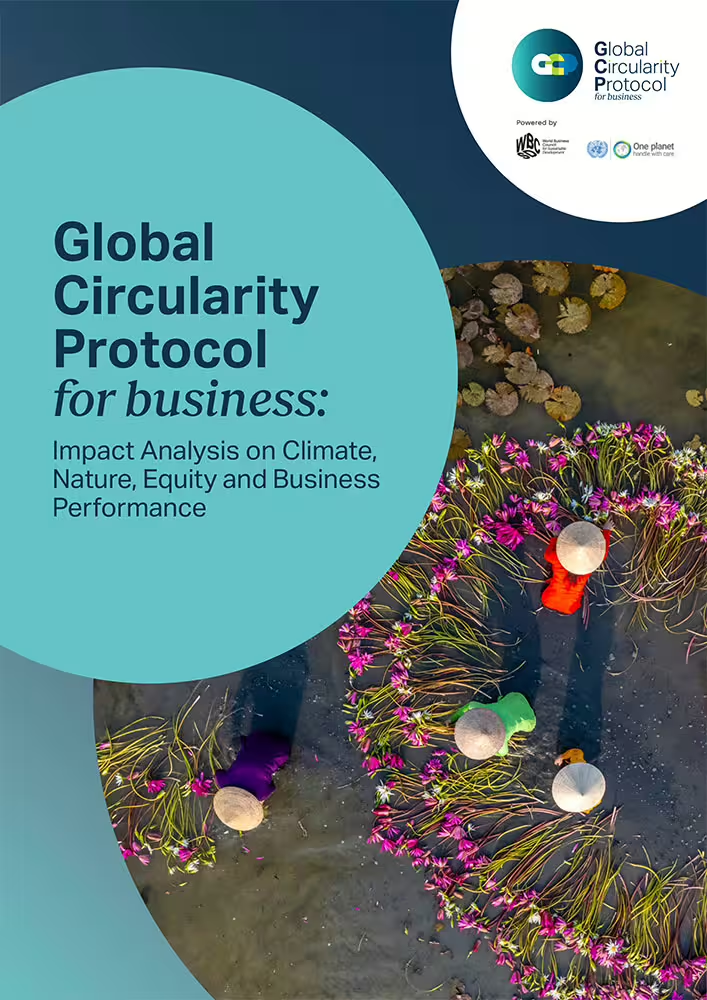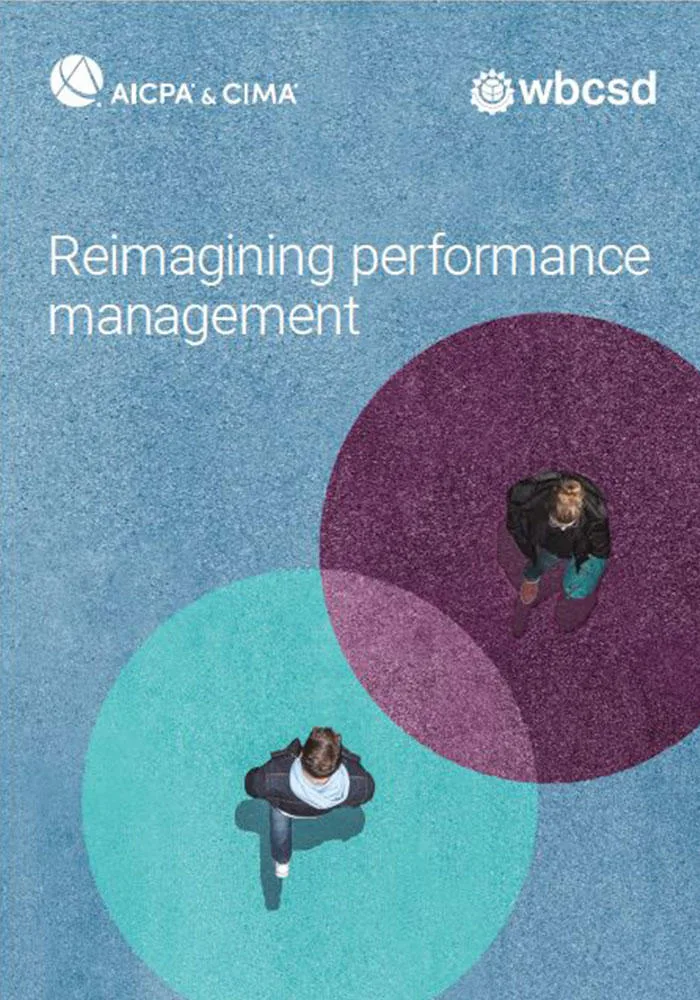This analysis outlines the potential of the Global Circularity Protocol for Business (GCP) to accelerate the transition to a circular economy by providing businesses with a standardized framework for target-setting, measuring, and reporting on circularity. It evaluates the potential impacts of the GCP on climate mitigation, resource conservation, and social equity while enhancing business performance across multiple sectors.
Key findings:
- Circular business practices: Adoption of the GCP is expected to be a catalyst for rapid advancement in circular maturity, with the potential to double the pace at which business circularity matures.
- Material consumption: The GCP has the potential to reduce global material consumption by 4% to 5% between 2026 to 2050. Additional cumulative material savings in this period are 100 to 120 billion tons and are equivalent to the amount of material consumed currently per year.
- Climate impact: The adoption of the GCP could lead to an additional reduction of GHG emissions between 6% to 7% over the period 2026-2050, equivalent to 67 to 76 gigatons of cumulative CO2eq savings. In comparison, this is between 1.3 and 1.5 times current annual global emissions. This is equal to 12 times the current annual emissions of the US or 5 times the annual emissions of China.
- Nature conservation: Significant environmental benefits include an additional decrease of air pollution (PM2.5), on average by 11% to 12% per year, between 2026 and 2050.
The Global Circularity Protocol for Business (GCP) is a pioneering initiative led by the World Business Council for Sustainable Development (WBCSD) in collaboration with the One Planet Network (OPN). It will help guide companies in target-setting, measuring, reporting and disclosing progress on resource efficiency and circularity, combined with comprehensive and targeted policy guidance to accelerate the shift towards circular business models and a regenerative economy.
The GCP aims to deliver the first Protocol version by 2025 at COP30 and has four strategic workstreams; (1) Circular Impact Analysis, (2) Corporate Performance and Accountability System (CPAS) for Circularity, (3) Policy Framework for Circularity, and (4) Science-informed targets for Circularity. The workstreams receive strategic and technical guidance from Policy, Business, and Independent Scientific Advisory Committees, and Technical Working Groups. Deloitte Consulting AG and Circle Economy Consulting are providing ongoing technical support to WBCSD and OPN for Workstream 1, in consultation over 60 members of the Technical Working Group and the validation from the Independent Scientific, the Policy and the Business Advisory Committees.




